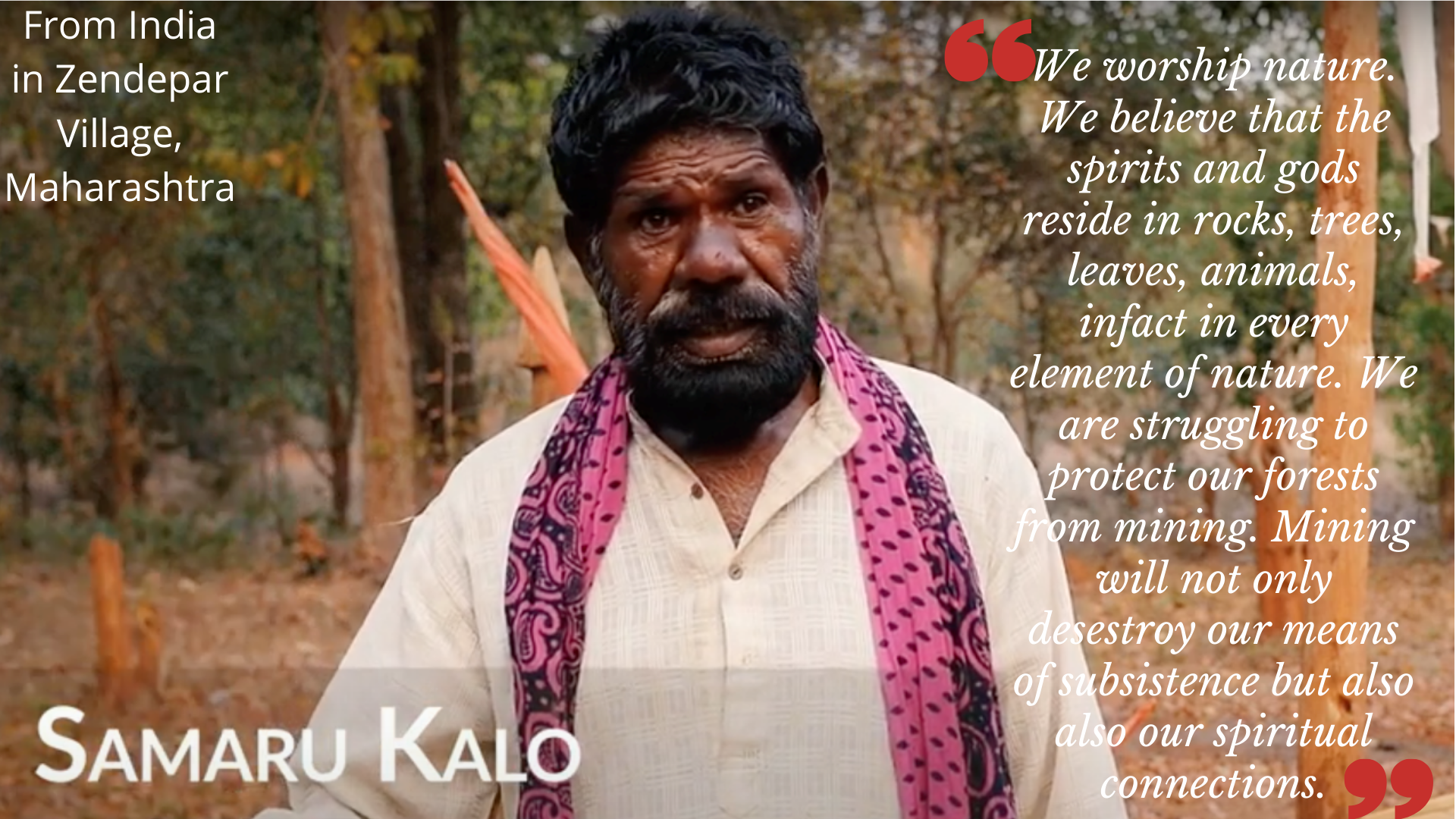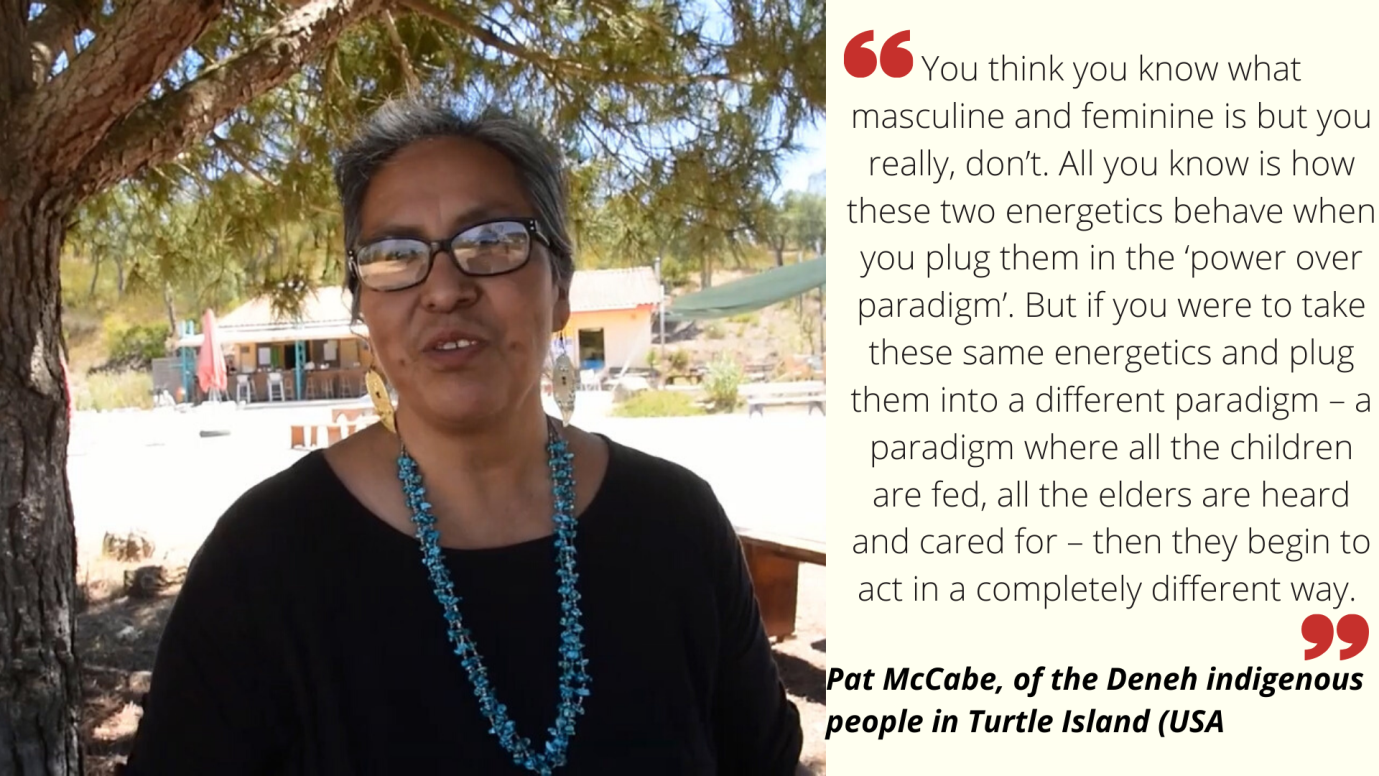Resilient communities: our pathways to just, equitable and ecological futures!
Diverse communities around the globe have been diving into their traditions and innovating to respond to ecological, economic, political and social crises (including the current COVID-generated one). These communities have shown immense resilience towards the onslaught of ecological destruction, colonialism, stateism, patriarchy among many others. Though these processes are deeply rooted in cultural, ecological and political context yet the learnings emerging from them are ultimately relevant to all of us especially now when we see the fractured societies all around us.
This article visits some of these resilient communities and initiatives who along with the resistance are also creating their own ways of social being closely tied with their own conceptions of well-being. These processes are moving towards the life of emergence that is rooted in daily practices of eating, healing, care and for life free of subordination. Their revolution lies in daily acts of resistance and hope.
Last year in November, I was in the city of Oaxaca, Mexico known for its revolutionary impulse. I had the fortune to visit Universidad de la Tierra (or University of the Earth) which was initiated in 2001 out of the coalition of indigenous peoples and non-indigenous organisations after years of communal debates and deliberations. The university is part of a decolonising project that attempts at creating an autonomous learning, studying, and reflecting, space. The space stands against all forms of oppression and injustices that has its roots in patriarchy, capitalism, stateism, and anthropocentrism. Unitierra decided to adopt explicitly the ‘sense of proportion’ i.e. not to grow very much. This implied that they remained small and focussed in one location. When other people became interested in Unitierra’s approach; they created other unitierras, with very different shapes and orientations. There are community unitierras, like those in Huitzo and Ixtepec, in Oaxaca, regional unitierras, like those in Chiapas or Puebla, in Mexico, and others in different countries: two in Colombia and one in Canada, the US, Spain and Japan. Unitierra, Oaxaca has organized itself to launch a campaign called “against the politics of fear and the construction of hope”. The main intention of this campaign is to provide useful information about risks and basic care in the face of COVID-19, keeping hope and mutual care at its core[i].

Gustavo Esteva, an activist, ‘deprofessionalised’ intellectual, and one of the founders of Universidad de la Tierra, Oaxaca.
“This space is for women in defence of a free life” says Consuelo Rosette, one of the stewards of University of the Earth, Huitzo. Inspired by the Unitierra Oaxaca, Rosette along with 12 other community women started their own space that is rooted in the soil, challenges the patriarchy, and bring backs eating and healing as part of everyday life in Huitzo village which is 45 Km from the city of Oaxaca. Consuelo Rosetto along with other women by practicing eco-techniques, reviving traditional ways of healing, growing organic, promoting toxic-free food, bringing back new and old ways of learning are demonstrating an exemplary example of resilience, care and love. “This space is for women” says Rosette with a smile, while I wondered how liberating it would be to have a space for women and by women.

Reclaiming life and challenging the dominant systems is a struggle with outside forces but many times it is also internal and one example of this is the Kurdish Rojava Movement in Central Asia. The movement situates itself to establish direct/radical democracy rooted in ecological resilience, ethnic diversity and women’s struggle. The Kurdish Movement along with struggling for a free Kurdishtan also began questioning and transforming the internal patriarchal systems. On the sidelines of Defend the Sacred alliance meeting at Tamera in Portugal last year, an alliance[ii] to promote sacred activism, I met Besime Konca, a Kurdish politician who has been raising her voice against Turkey’s occupation in Kurdistan. She is part of Kurdish women’s movement that is struggling against the patriarchal forces outside as well as within their own communities.
“As Kurdish women’s movement, in our struggle against this system of destruction, exploitation, death and superficiality, have discovered so much that is sacred to us. For us, everything is sacred that has retained its independence, that cannot be used, that cannot be subjected. For us, people are sacred who, despite everything, have kept a conscience and fight for justice. For us, a respectful attitude towards nature, towards other people, towards the historical efforts and struggles of our comrades is sacred” says Besime Konca addressing the audience at the Defend the Sacred conference in Portugal.
The Kurdish movement’s emergence lies in imagining and creating societies on democratic confederalism where ecological stewardship and gender-liberation guides all decisions about city or village planning, economics, food, water and where possible, according to principles of commons. The Kurdish movement offers a vision and inspiration for direct democracy, gender equality, communal economy, social movement organisation and ecological resilience in the midst of a severely conflict ridden-region.

Another inspiring process of autonomy and self-governance emerged in 2016, when 90 villages in Korchi in Maharashtra’s Gadchiroli district came together to form a federation called the Maha Gramsabha (MGS) to localise control over means of livelihoods and establish direct democracy. Along with this historic process, something else also happened. Women who struggled to find their voices in patriarchal society, rose up to demand 50% representation in MGS. Just like the Kurdish movement, in the Korchi process, women along with questioning the external injustices started questioning the injustices perpetrated on them within the community.
“Justice has to be holistic. If we are seeking for it in one sphere, we can’t ignore the other. Women have been at the fore-front of the resistance movement against mining but never find their voice in the traditional decision making spaces. That is why we insisted 50%. Now two men and two women from each Gram Sabha (village assembly) are part of MGS” says Kumari bai Jamkata, an adivasi women leader who monitors 40 self-help groups in Korchi and now training the GS members in accounting and auditing.

The Maha gramsabh and Mahila Parisar Sangh (Women’s collective) collectives along with resisting against mining in their sacred forests are also emerging as models of direct democracy. They are playing a critical role in transforming many local situations by localizing control over economy, reviving cultural identity, raising social and equity concerns, questioning existing models of development, monitoring local health and education, among others. The processes unfolding in Korchi have their roots to the notions of well-being that encompass collective process of everyday living and a sense of responsibility towards the fellow beings and the rest of nature.

The spiritual, cosmological connection with the rest of nature and the attribution of nature as a living being that is revered and hence needs to be respected, protected, guarded, foregrounds resistance to destructive development in Korchi. It sets the foundation for their processes of resistance and transformation. For the last three years in my involvement with the processes in Korchi, at the speed of a snail, I have begun to understand the complexities of everyday life, the unbreakable resolution of communities, their deeply rooted assertions of well-being in their daily lives and their intelligence that emanates from their relationships with land, forests, water and other species.

Another example of a resilient community and movement that witnessed one of the most inspirational rising of the Indigenous peoples in the current times is the Standing Rock movement of 2016 in United States against the pipeline threat to Sioux Tribe’s primary water supply, the Missouri River. The narration of spiritual connections with water and illuminating that the water is a living being was at the core of the movement. It resonated with hundreds of indigenous peoples across the world who are defending their ways of being and a million gathered at the protesting sights with the Sioux people.
“Everywhere you walked there were people praying, singing, and dancing. People from around the world brought water from their rivers, their ponds, their oceans to put it in our river. Every day, there were prayer ceremonies as we put this water, and brought this water from the world into the river. I think that was the key to touching the world” says Ladonna Brave Bull one of the earliest to protest the proposed Dakota pipeline.
The Standing Rock movement not only connected many movements together but also in many ways healed the people who protested and provided new ways of protesting and resisting.

The Standing Rock Movement inspired many movements towards sacred activism.
As Pat McCabe recalls “My son had gone to Standing Rock. And when the drilling of fourteen deep aquifers was proposed in our community in New Mexico, he said, “Mom, we’re having a meeting about this water situation, can you please come and would you please open it with a prayer.” I was really surprised because we haven’t really had that relationship before. He knows how my life is but I didn’t know that that was entering into his life. I didn’t know that he felt strongly about that. I was so grateful to whatever those elder women did at Standing Rock, to make it clear to these young men, our role in the Grandmother Lodge ,and to bring deep feminine experience and wisdom into activism situations” .

Tiokasin Ghosthorse, Lakota Indigenous people of Turtle Island feels that it is indigenous peoples intuitive intelligence that sustains their ability to live in the earth and protect it when it is threatened. He says
“The communication we go through has always been, I would think, through water. It’s not the fact that I would have to believe anything because that’s another virus, to believe. If you believing then you’re just accepting it and that requires submission to authority. The key is that we know that in life, in nature, in nurture, that they have no authority. They have to be in relationship. That’s how and why the earth has been here for so long before the human race.”

These initiatives, processes, and articulations by communities or groups are connected or weaved through a set of values: love and care for the rest of nature, solidarity, collective work, enoughness, simplicity, reflection, deliberations, celebrations, struggle for justice, and resilience among many others. These values ground their processes of resistance and transformations.
COVID-19 has exposed deep fractures of our economic, political, social and cultural lives. In the wake of realising deep inequalities and injustices that abound in our human societies and our relationships with the rest of nature, there is a dire need to pay attention. Pay attention to the nature and communities around us who have been stewards in resisting the systems and creating alternative imaginations. We need to revisit the resilience, dignity, love and care that these communities have shown against the dominant models of ‘development’ and political governance which has clearly turned out to be ecologically unsustainable, highly inequitable, and violent. The communities world-over have been challenging the ‘accumulation by dispossession’ for generations now. In the times of COVID, this insurgent spirit is being manifested in forms of peaceful rage against the dastardly policies of the current masculinist, capitalist, statist, casteist, and anthropocentric state. The insurgent spirit is also being expressed in forms of solidarity, care, strengthening of existing localised exchange systems and birthing of new ones (visit this to know more at India level: http://vikalpsangam.org/ and this one for more global: https://www.radicalecologicaldemocracy.org/). We have a lot to learn from these collective process of small and big acts of everyday life: from farming, conservation/management of forests, communal living, convivial learning, and eco-spiritual practices to resistance against destruction of the earth and displacement of communities.
[i] As updated to the author by Itzel P. Farias Malagon from Unitierra, Oaxaca.





